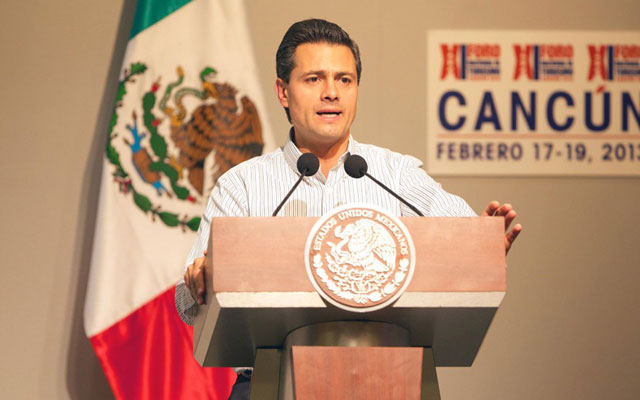Mexico’s new president, Enrique Peña Nieto, has made clear that his re-election does not signal a return to the old days of corruption and cronyism when his party, the Institutional Revolutionary Party (PRI), and its public-sector unions ruled Mexico virtually unopposed for 70 years.
To prove this point, one need look no further than the arrest last week of Elba Esther Gordillo—the leader of the 1.5 million-member National Union of Education Workers (a teachers union)—on charges that she embezzled 2 billion pesos (about $160 million). Gordillo, who many consider to be the most powerful woman in Mexico, was caught making $3 million in purchases at Neiman Marcus using union funds. She also used union funds to pay for plastic surgery and to purchase a million-dollar home in San Diego, California.
While Gordillo lived lavishly, the public-education system for young Mexicans has steadily deteriorated. Academically, Mexico is the worst performing country in the Organization for Economic Co-operation and Development (OECD)—roughly two school years behind the best performing country.
The timing of Gordillo’s arrest corresponds nicely with a growing debate over education in Mexico. A new education law, recently signed by Peña Nieto, seeks to break the teachers union’s stranglehold on the country. Currently, teaching positions can be sold and even inherited; the new law prevents that from happening and establishes uniform standards for hiring and promotion. Mr. Peña Nieto is seeking to revive the Mexican economy by pursuing labor reform—and this education bill is an excellent start.
There is a common thread running through Ms. Gordillo’s arrest and Mexico’s problems with labor and education reform—corruption. Corruption erodes economic freedom and correlates directly with the level of a country’s human development and quality of life.
The Mexican government dispensing special privileges to the teachers union has encouraged this type of rampant corruption. Arresting a corrupt union leader such as Gordillo is a step in the right direction for Mexico. It will be the first of many difficult steps that the young president must make in order to combat corruption in his country. It seems he is ready for the fight.
Drew Ringley is currently a member of the Young Leaders Program at The Heritage Foundation. For more information on interning at Heritage, please click here.































